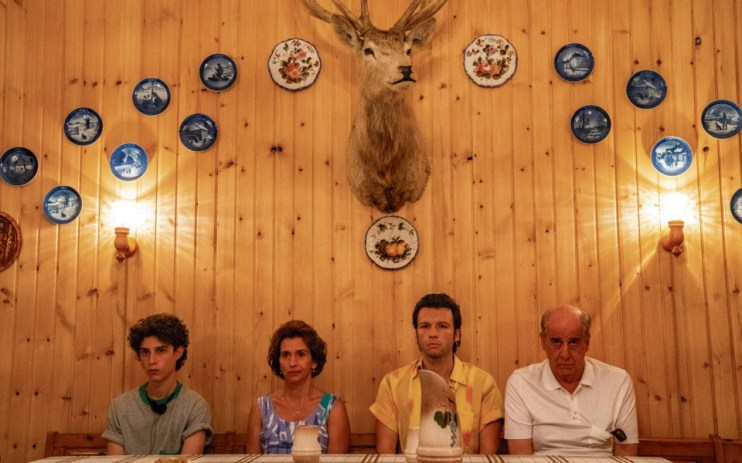The Hand of God review: Childhood memories and Maradona obsessions

Awards season can often be a time when great directors get reflective. Alfonso Cuarón’s Roma became an Oscar contender two years ago, while Greta Gerwig’s Lady Bird and Lee Isaac Chung’s Minari have both won acclaim in recent years as films based partly on the filmmaker’s experiences.
It’s a tricky path to take, however, sometimes coming across as rather self-indulgent. Paolo Sorrentino, director of The Great Beauty and Loro, could well have fallen into that trap with this film based on his own youth, but instead we’re treated to a humble, surprising drama.
The Hand of God follows Fabietto (Filippo Scotti), a teenager living in Naples during the 80s, in the backdrop of Diego Maradona’s landmark move to the city’s football team. Surrounded by colourful characters in his loving family and bustling community, the young man’s adoration of his new sporting hero inadvertently saves his life, as he avoids a family tragedy while watching Napoli play. Facing a number of personal challenges, Fabrietto learns that the best and worst things in life often live alongside each other.
Describing a story as a ‘slice of life’ can be ambiguous. Sometimes it’s a way to celebrate art that captures the human experience, and sometimes it’s a polite way to say nothing much happens. Sorrentino delivers the former, in a beautiful tale of youth, loss, and adulation. It doesn’t progress in the way audiences will be used to but few will argue that spending two hours in Fabietto’s world isn’t a gorgeous experience.
Set against the beauty of Naples, we follow our lead through many formative experiences. From getting into scrapes with reckless cigarette smugglers, to his infatuation with troubled Aunt Patrizia (Luisa Ranieri), everything feels alive. Small moments around a crowded kitchen table are given as much prestige as Maradona’s titular World Cup goal, with the director bringing his childhood to life with a fondness that celebrates each moment.
The absurdity of family and community is at the film’s heart, with so many gatherings dissolving into hilariously bitter squabbles and, in one instance, a brawl with a child’s bike.
Last July, a few months before his death, Diego Maradona considered sueing the production, believing the title and the subject matter to be an infringement of copyright. In truth, this is not a football film, nor is it a biopic of the player, but he does play a big part in the story. He’s portrayed like a deity, and a symbol of hope as people move through their lives.
abietto and his brother watch the great man practice with the hushed awe of churchgoers, and his presence is given a religious aura throughout the film. Marital arguments and even funerals are halted with conversations about the player’s movements. It might seem forced, but anyone who has seen Asif Kapadia’s documentary Diego Maradona will recognise the adulation he commanded in the city.
More than just a pretty European art film, The Hand of God is a sensitive memoir that possesses all the beauty and pain of the best memories. While this is a filmmaker telling his own story, the themes will be accessible to all.